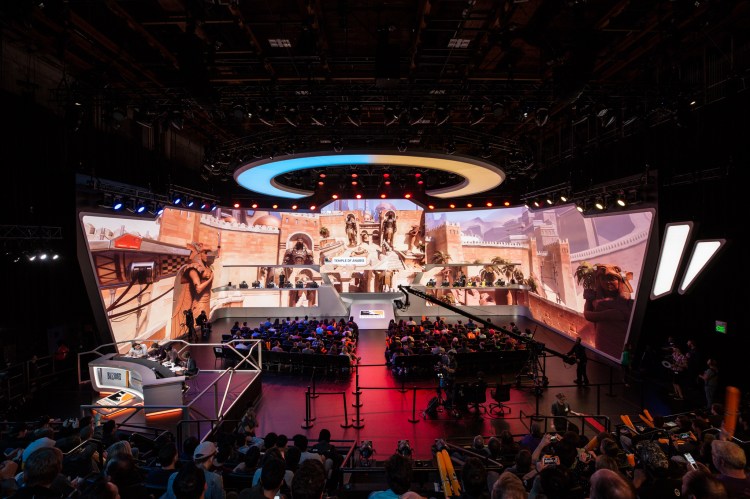Since the first announcement of Blizzard’s Overwatch League, I’ve tried to stay excited. After all, this is the first time that an esports organization was going to do some of the things I’ve always said I wanted: city-based teams, seasonal play, and base-pay for players. The problem is that in the time since Blizzard revealed the idea in November 2016, I’ve started to think that even with all the things I like about the Overwatch League concept, that I still wouldn’t want to tune in. I’ll need time to see if I grow attached to any of the teams, but now that I’m witnessing the season for myself, it’s obvious the Overwatch League has a future.
The great news for the Overwatch League is that this model works. In action, the matches look a lot like high-level play from other competitive Overwatch events, but the key is to find ways to give the audience a reason to care about the results of that play.
Obviously, if you’re from New York, London, Los Angeles, or one of the eight other cities with an OWL squad, you have built-in rooting interests. I still think that’s important, especially since most people come up with regional reasons to root for one club over another in leagues that don’t use a city model. Go watch any esports event on Twitch, and you’re never more than a couple of minutes away from hearing a commentator bring up some storyline division between North America and Europe or East Asia.
But as I was watching the Dallas Fuel take on the Seoul Dynasty in an excellent match earlier this week, I realized that it’s not really about the cities themselves. I’ve never been to Dallas or Seoul, but I found myself thinking that either one of these squads could end up as “my team.”
June 5th: The AI Audit in NYC
Join us next week in NYC to engage with top executive leaders, delving into strategies for auditing AI models to ensure fairness, optimal performance, and ethical compliance across diverse organizations. Secure your attendance for this exclusive invite-only event.
https://youtu.be/FJPkiOX9NgE
The reason I was willing to invest emotion into this instead of simply enjoying the magnificent play is because I believe that the Overwatch League and these teams will still exist next year. Again, attaching to a city helps with that. It gives the impression of permanence, especially for someone like me who has rooted for his hometown traditional sports teams since I was a kid.
The amount of money getting thrown into this also does a lot to create a sense of value in my head. Teams spent a total of $240 million on franchise fees, and then Twitch spent $90 million for the broadcast rights. You would think that those numbers have no effect on what happens within a match, but that’s not the case. Every play feels more legitimate because I’m watching after just reading a news story about how much skin some people have in this game.
Due to the global nature of video games and the expense of running a worldwide esports association, Overwatch League will likely always have more people watching from outside of its team cities than within those regions. To win longterm devotion from fans — and to get them to spend some money on team merchandise — stability is crucial. And maybe Overwatch League is no more or less stable than other esports leagues, but it already feels more permanent to me.


